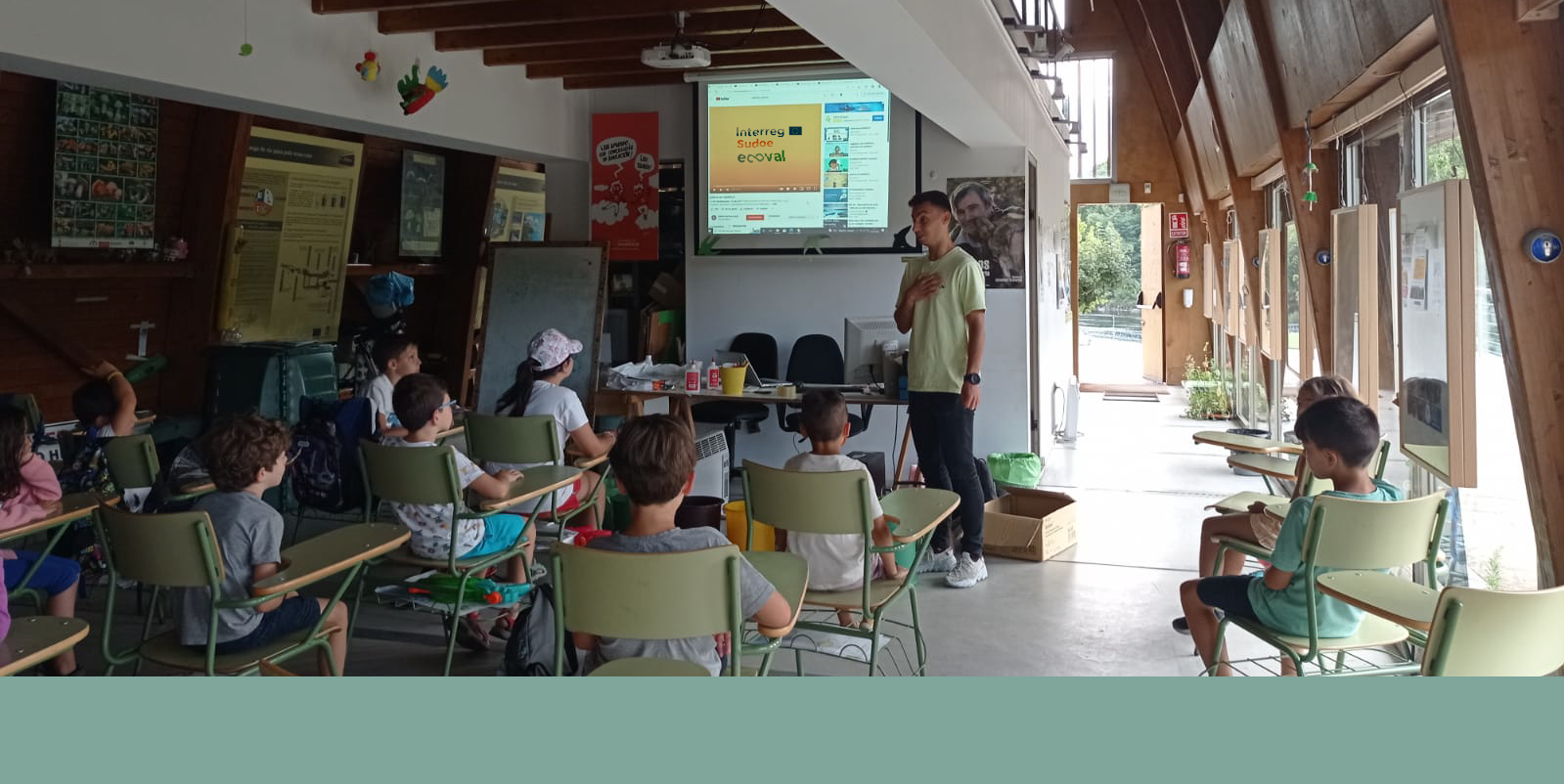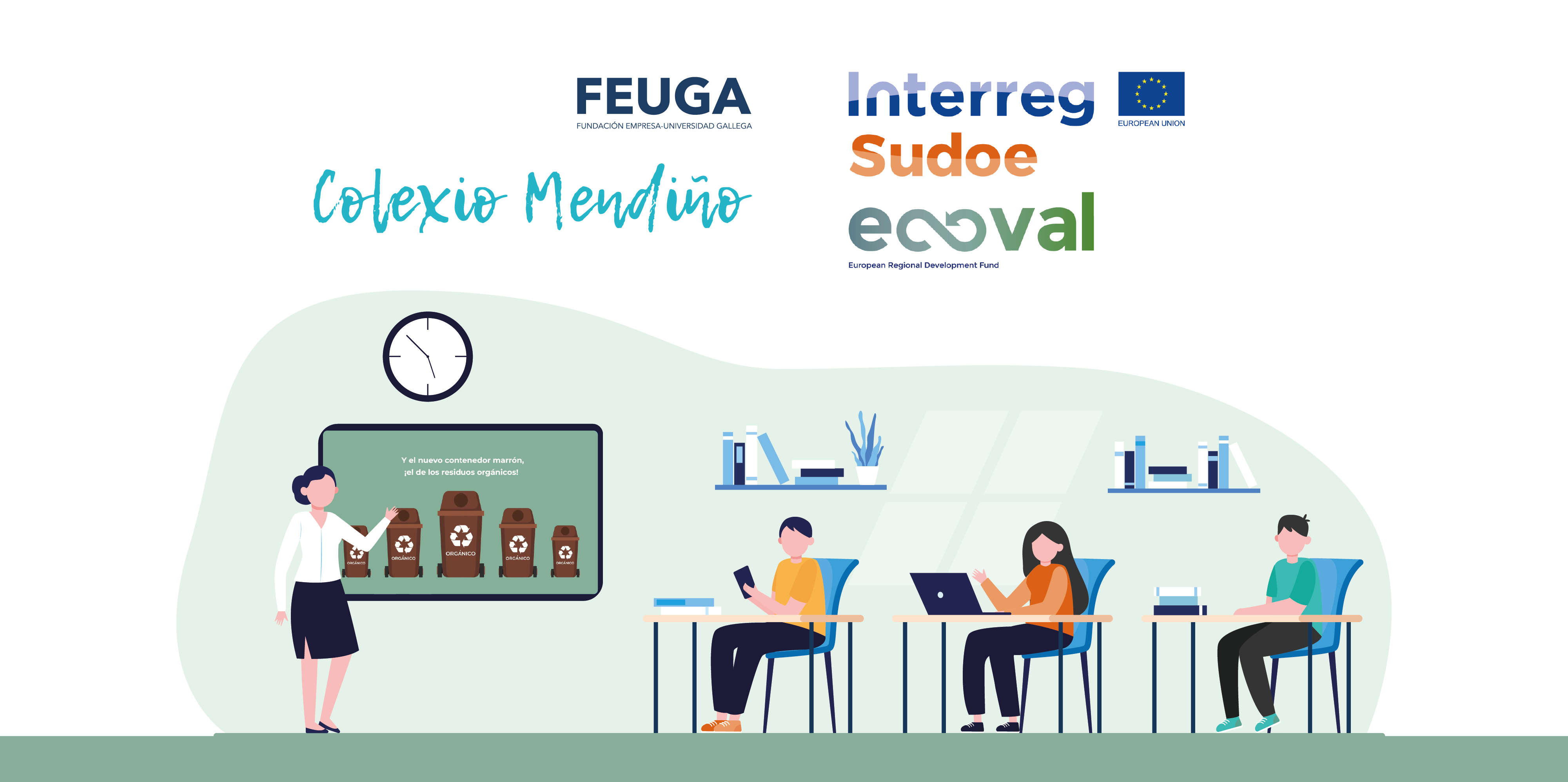On Tuesday 19 July, the European project ECOVAL SUDOE presented its model of management and recovery of sewage sludge and urban organic waste to students participating in the Aula de la Naturaleza de Oira, organised by the Council of Ourense. CETAQUA Galicia, leader of the project, was in charge of transmitting to the children the importance of the correct separation of waste to achieve a more sustainable world. The active participation of the 12 children aged between 4 and 12 years old was the key piece of the session.
Ánder Castro, the CETAQUA technician in charge of the training, showed the positive impact that recycling has on our lives, explaining the processes involved in this type of circular economy and how each individual can collaborate at home, achieving a great collective benefit. Of course, the importance of avoiding the use of the toilet as a waste bin was also highlighted, given that wipes, plasters and swabs (among other things) can cause major environmental problems when they accumulate in the sewage networks of our cities, as well as in wastewater treatment plants. In addition, it was stressed how important it is to avoid food waste, promoting controlled purchasing and responsible consumption.
Science in the service of citizenship
The talk was structured in an informative part in which the children were shown content related to waste management, showing them the different bins that currently exist, with special emphasis on the brown bin, which is still in the implementation phase. Subsequently, videos related to the subject were shown and interactive games developed within the framework of the “A new bin, are you in?” campaign of the ECOVAL project were played. The group showed great interest in the content of the activity. The ease with which they were able to separate the different types of waste at the end of the activity stood out. In this way, science was put at the service of the society, transferring the knowledge generated in the project in a simple and understandable way, in order to raise environmental awareness.
CETAQUA Galicia will give another training related to recycling in the same Aula de la Naturaleza on 25 August 2022. The company Viaqua is also actively participating in it through its Aqualoxia activity, in which the knowledge of the integral urban water cycle is highlighted.





